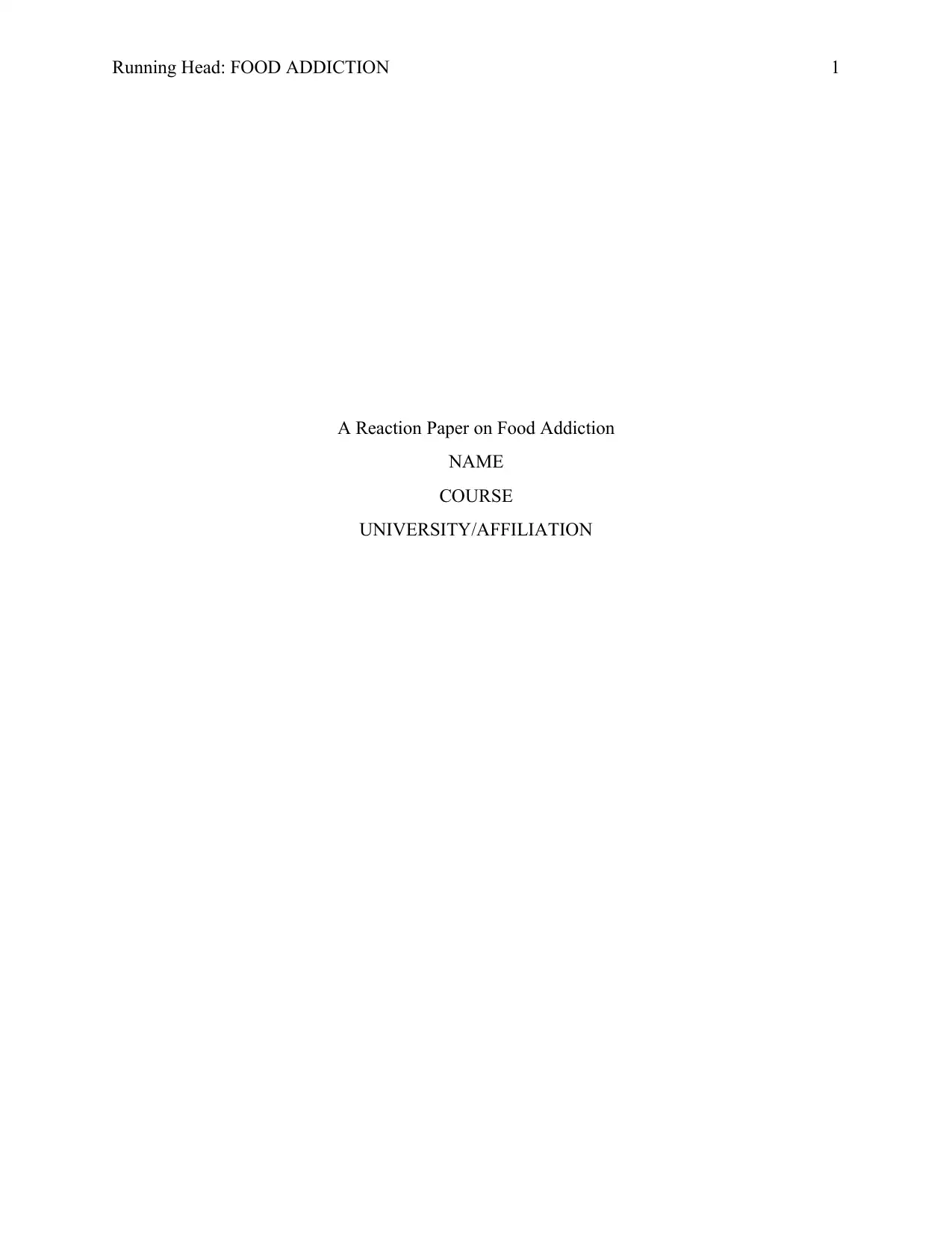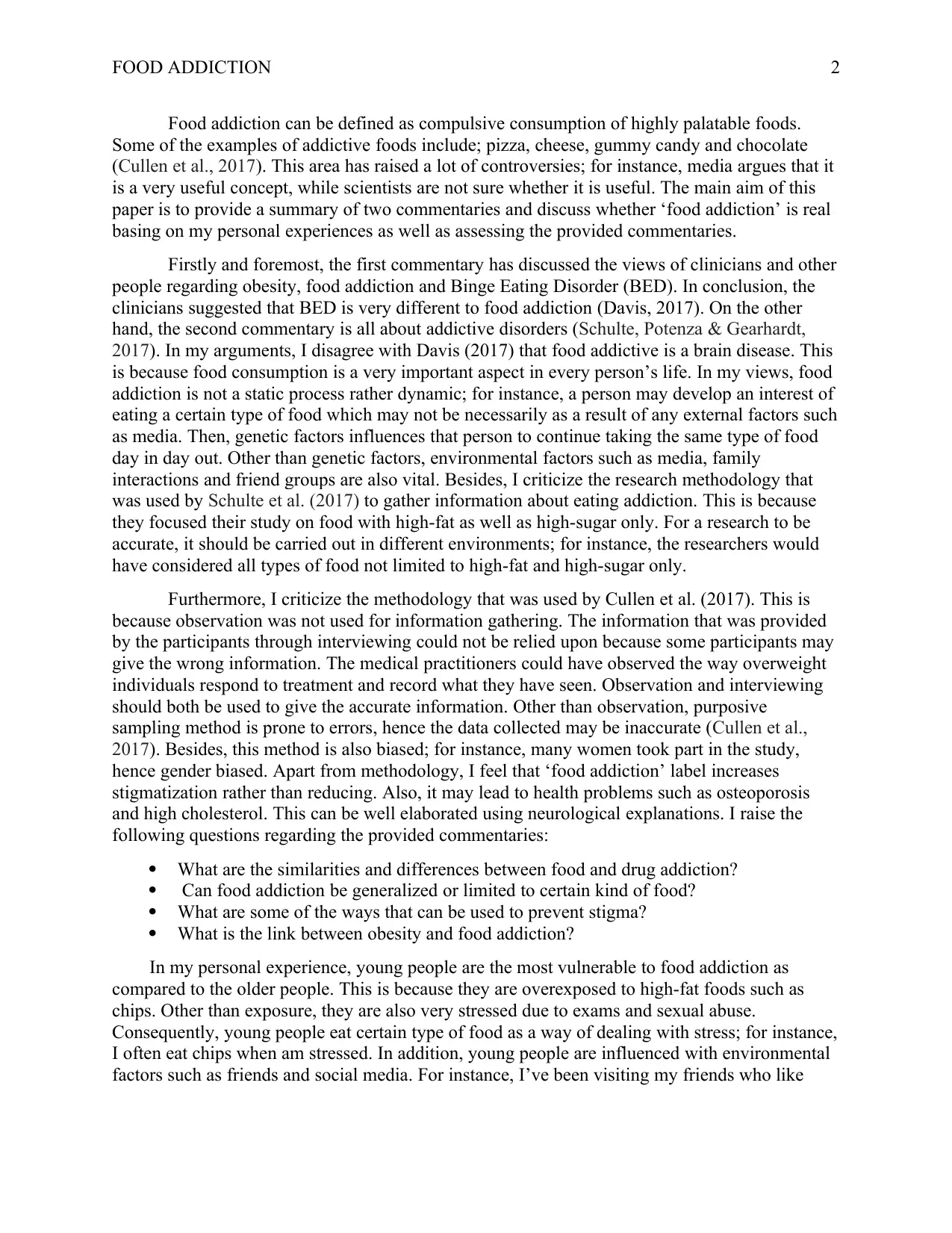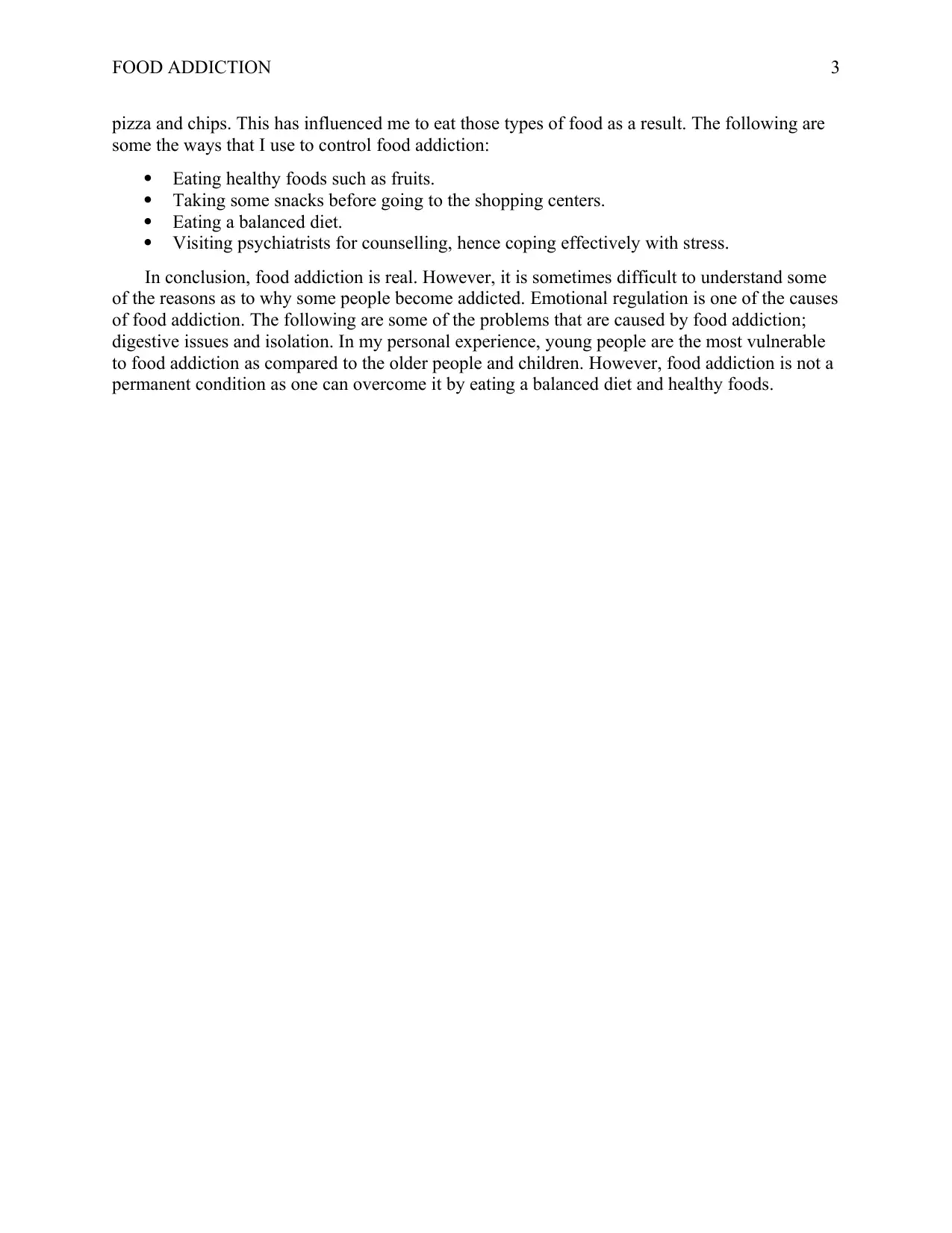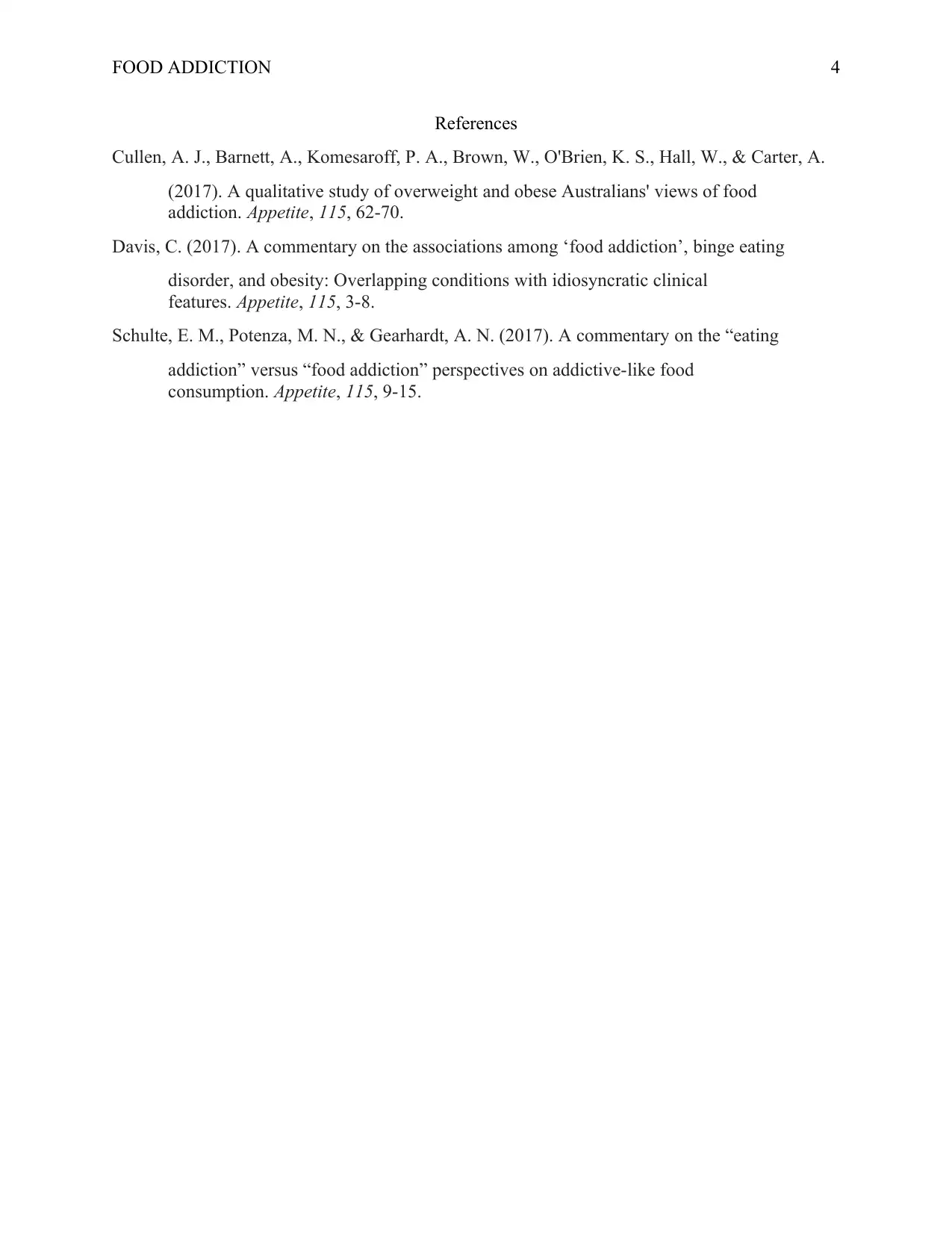Food Addiction: A Critical Reaction Paper and Analysis of Research
VerifiedAdded on 2022/10/10
|4
|1048
|63
Report
AI Summary
This reaction paper examines the controversial concept of food addiction, analyzing research, personal experiences, and critical perspectives. The paper begins with a definition of food addiction and provides examples of addictive foods. It then summarizes two commentaries discussing the views of clinicians and the addictive nature of food consumption. The author disagrees with the view that food addiction is a brain disease, arguing that it is a dynamic process influenced by genetic and environmental factors. The author also criticizes the research methodologies used in the commentaries and provides personal experiences to support their arguments, highlighting the vulnerability of young people to food addiction. The author concludes that food addiction is real but difficult to understand and suggests ways to control it, such as eating healthy foods, taking snacks before shopping, eating a balanced diet, and seeking counseling. The paper also raises several questions regarding the provided commentaries and discusses the causes and consequences of food addiction.
1 out of 4







![[object Object]](/_next/static/media/star-bottom.7253800d.svg)